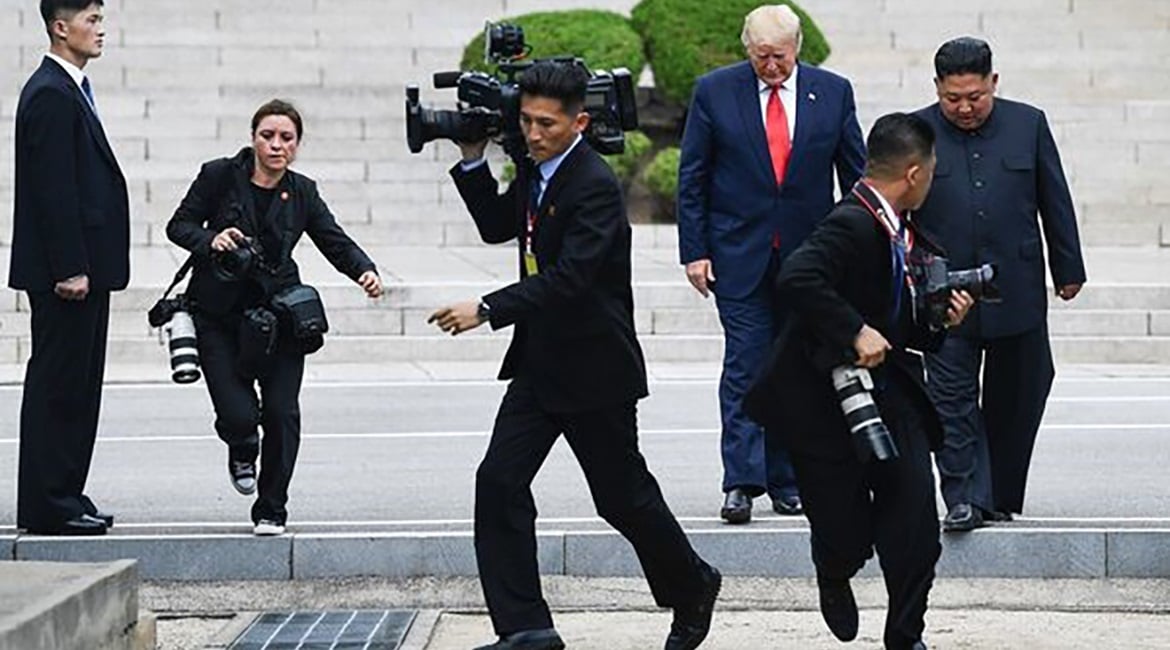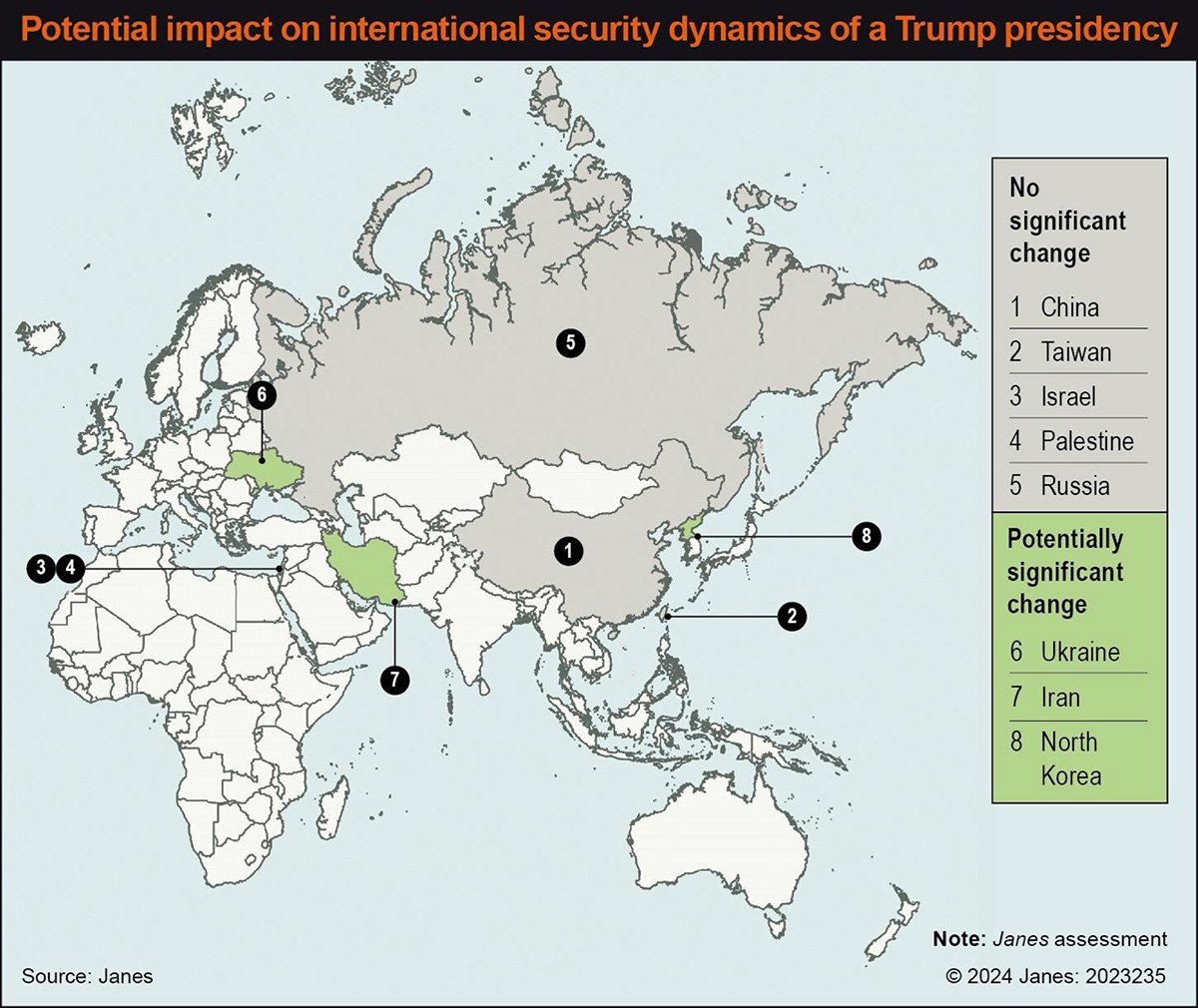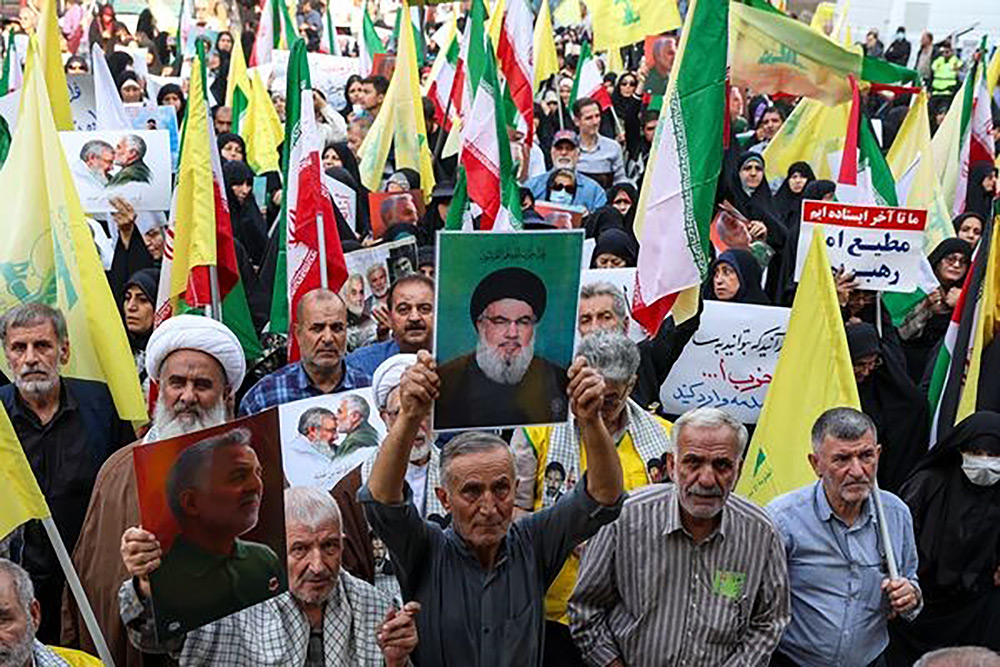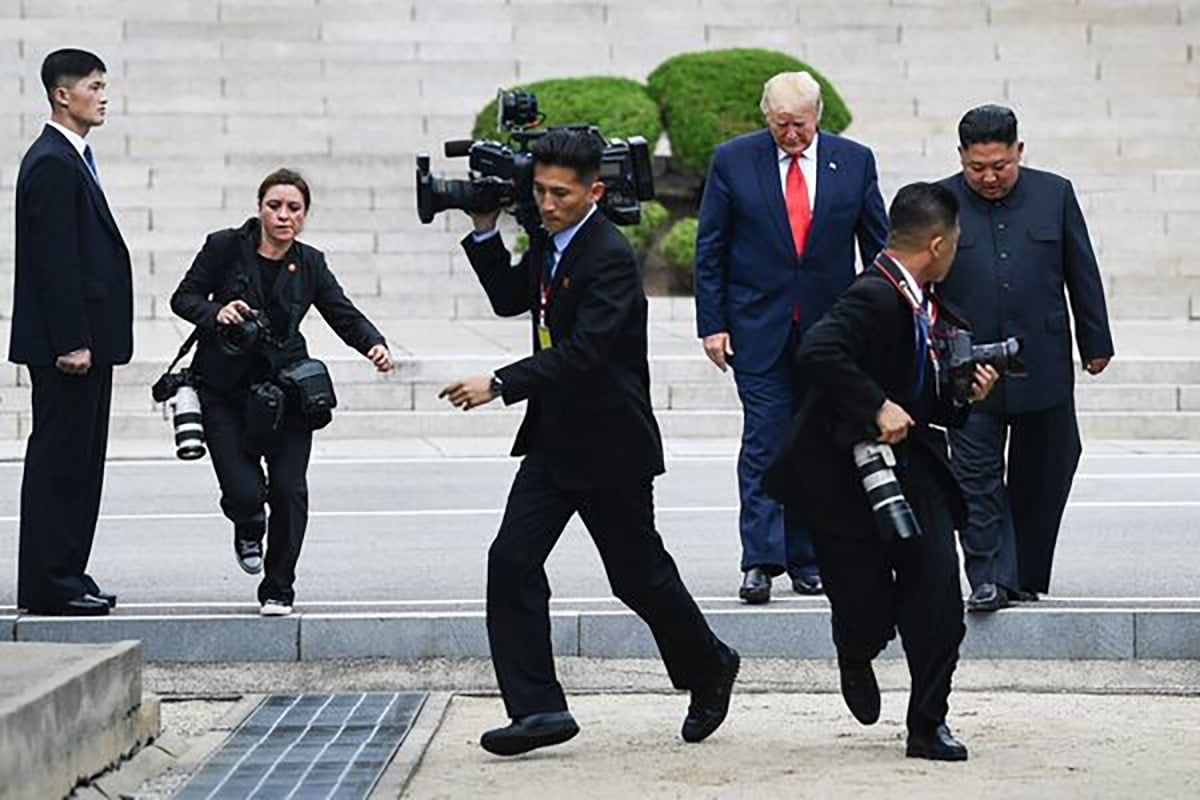
Date Posted: 06-Nov-2024
Author: Lewis Galvin, London, UK Alex Petric, London, UK Saurav Sarkar, Bangalore, India Anant Venkatesh, Bangalore, India
Donald Trump won the 5 November US presidential election and his incoming administration is likely to alter aspects of current US foreign policy. Janes Senior Americas Analyst Lewis Galvin analyses the potential impact on security dynamics in Asia, Europe, and the Middle East, with contributions from Janes analysts Alex Petric , Anant Venkatesh , Elliot Chapman , and Saurav Sarkar
Key points
- Intelligence question: Will the security dynamics in the Asia-Pacific, European, and Middle Eastern theatres undergo a substantial shift under a Donald Trump presidency?
- Significance: Trump is more likely to demand further economic concessions from allies, particularly over military co-operation agreements with partners such as Taiwan, South Korea, and Ukraine, than President Joe Biden's administration. In the Middle East, Trump will very likely continue supporting Israel's right to defend itself while repursuing his ‘maximum pressure' strategy on Iran by targeting broad swathes of the Iranian economy with sanctions and attempting to inhibit the Iranian government's ability to support regional proxy groups
- Assessment and outlook: Janes assesses that a Trump administration would likely lead to significant changes in the security dynamics in Iran, North Korea, and Ukraine. Trump's ‘maximum pressure' policy would very likely inhibit the Iranian economy and in turn limit the Iranian government's ability to support regional proxies such as Hamas and Hizbullah in the medium to long term. Regarding North Korea, Trump's previous administration demonstrated a willingness to negotiate with the North Korean government, although North Korea's increasing co-operation with Russia to circumvent economic and military sanctions will very likely make it more difficult to engage in negotiations in the short term. The prospect of Trump reducing economic and military aid for Ukraine similarly poses an increased risk of prompting the Ukrainian government to enter negotiations to find a resolution to the conflict
Intelligence requirement
On 18 October, Janes published a report on the risks the US presidential election's outcome may have on security dynamics in Asia, Europe, and the Middle East. This updated version after the 5 November election focuses on Trump's foreign policy ideas.
At the time of publication, mainstream media outlets including the Associated Press, CNN, and NBC News had projected Trump to win 276 electoral college votes – six more than the required 270 – with five states (Alaska, Arizona, Maine, Michigan, and Nevada) still to declare at the time of publication. Trump and his vice-presidential pick JD Vance will be inaugurated and assume office on 20 January 2025.
The change in administration will almost certainly affect US foreign policy, particularly related to the Asia-Pacific, European, and Middle Eastern theatres. The countries and territories assessed in this regard are derived from threats identified in the 2017 national security strategy published under Trump's previous administration, in addition to prominent ongoing conflicts, namely:
- China and Taiwan
- Iran
- Israel and Palestine
- North Korea
- Russia and Ukraine
Context
Trump did not prioritise foreign policy throughout the campaigning period and instead emphasised domestic issues, such as the economy and immigration. Throughout CNN's election coverage between 5 and 6 November, exit polls indicated that only 3–5% of voters polled had stated that foreign policy was a key voting issue for them.
The 2016–20 Trump administration's foreign policy was underpinned by the ‘America First' doctrine, which prioritised domestic prosperity and security over overseas commitments, and indicates potential foreign policy approaches for the incoming administration. The preamble to the 2024 Republican Party manifesto on Trump's campaign website is ‘America First: A Return to Common Sense', indicating that the ‘America First' doctrine will almost certainly continue to be the cornerstone of a Trump administration's foreign policy. Trump's campaign website refers to his 2024 manifesto as ‘Agenda 47', referencing that if victorious, Trump would be the 47th US president in history, which is separate from the Project 2025 agenda frequently cited in mainstream media. During the 2024 campaigning period Trump has indicated that his foreign policy will shift to become more transactional compared with 2016–20. Trump has called on Taiwan to pay for US military support, and suggested US military support for Ukraine should be loaned rather than donated.
 Potential impact on international security dynamics of a Trump presidency. (Janes)
Potential impact on international security dynamics of a Trump presidency. (Janes)
Significance
China and Taiwan
High-level bilateral dialogue mechanisms between the US and China have gradually resumed since a 2023 summit between Biden and Chinese President Xi Jinping.
Relations between the US and Taiwan remained consistent under President Joe Biden's administration, with the continuation of arms sales and military training, and the US' commitment to the one-China policy.
Policy impact
Trump's manifesto, titled Agenda 47, indicates that his foreign policy regarding China is very likely to be driven by economic factors, such as revoking China's most favoured nation status and increasing tariffs on imports. Trump is very likely to persist with the US' ‘strategic ambiguity' policy regarding Taiwan, thereby recognising the one-China policy while maintaining unofficial ties with Taiwan.
Trump's campaign has focused on the US' economic relationship with China, indicating that US-Chinese relations are unlikely to be dictated by security policy. At a campaign rally in September 2024, Trump pledged to increase tariffs on Chinese exports up to 60% and to impose restrictions on critical industries such as energy, telecommunications, and technology.
Trump likened US military support for Taiwan to an ‘insurance policy' during the campaigning period, although Janes assesses with moderate confidence that he is likely to continue supporting Taiwan in exchange for economic concessions from the Taiwanese government. As president, Trump demonstrated his commitment to supporting Taiwan by increasing US military activity in the Taiwan Strait while simultaneously taking a tough economic stance on China. However, Janes assesses with moderate confidence that Trump's isolationist rhetoric and scepticism of US alliances and partnerships are likely to increase concerns in Taiwan, and increase the prospect of the Taiwanese government supplementing its military requirements through alternative partners while increasing investment in its armed forces.
Iran
During 2016–20 Trump pursued a policy of ‘maximum pressure' towards Iran, which included the targeted assassinations of high-ranking officials such as the then Commander of the Islamic Revolution Guard Corps-Quds Force (IRGC-QF), Major General Qasem Soleimani, in January 2020. According to the 3 March 2021 Iran Primer by the United States Institute of Peace (a non-profit organisation), Trump imposed more than 1,500 sanctions on Iran, including individuals and foreign entities with business dealings in Iran from a further 21 countries, and on Iran's oil and gas industry. In 2018 Trump withdrew the US from the Joint Comprehensive Plan of Action (JCPOA), which restricted Iran's nuclear development programme in exchange for sanctions relief.
Biden similarly prioritised implementing sanctions on over 600 individuals and entities to pressure Iran economically, but expressed interest in renewing the JCPOA in 2022. Talks stalled in mid-2022 though, and had not resumed at the time of publication.
In July Iran elected reformist candidate Masoud Pezeshkian as president, who said in the same month that he wished “to emphasise that Iran's defence doctrine does not include nuclear weapons and urge the United States to learn from past miscalculations and adjust its policy accordingly”.
Iran's ongoing financial and material support for a regional network of non-state armed groups (NSAGs) in the Middle East, including Ansar Allah (commonly known as the Houthis), Hamas, Hizbullah, and various Iraqi and Syrian Shia militia groups – the self-described ‘Axis of Resistance' – very likely disrupted any prospective US-Iran negotiations under Biden, particularly after Hamas' attack on Israel on 7 October 2023 and Iran's retaliatory unmanned aerial vehicle (UAV) and missile attacks targeting Israel in April and October 2024.
 Iranians lift the flag of Hizbullah and a portrait of its slain leader Hassan Nasrallah during an anti-Israel rally in Tehran on 8 October 2024. (AFP via Getty Images)
Iranians lift the flag of Hizbullah and a portrait of its slain leader Hassan Nasrallah during an anti-Israel rally in Tehran on 8 October 2024. (AFP via Getty Images)
Policy impact
During the campaigning period Trump frequently accused the Biden administration of enabling Iran to fund regional proxy groups by intermittently suspending sanctions. Trump's emphasis on Iran's financial strength suggests he would likely renew sanctions to target the Iranian economy and to attempt to inhibit Iran's ability to support regional NSAGs. Trump has ruled out renewing the JCPOA.
Janes assesses with high confidence that Trump would almost certainly refuse to renegotiate the JCPOA, and would instead likely repursue a similar policy of ‘maximum pressure' as he did during 2016–20. Throughout the campaigning period, Trump has consistently referred to Iran's ability to financially support the ‘Axis of Resistance', therefore increasing the likelihood that his administration would expand economic sanctions on the Iranian government.
Trump is viewed negatively in Iranian state media and by conservative-inclined Iranians, such as Supreme Leader Ayatollah Ali Khamenei, after authorising Soleimani's assassination. Consequently, Janes assesses with moderate confidence that Iran is likely to intensify its support for the ‘Axis of Resistance' as Israel conducts military operations targeting Iranian-aligned groups, and implement hard-line foreign policy initiatives that risk fragmenting the relationship between Khamenei and Pezeshkian. Janes assesses that there would be a roughly even chance that this shift in foreign policy would increase the prospect of Iran's national security being impacted by covert operations, particularly from Israeli security forces, while Israel is violently engaged with the ‘Axis of Resistance' on multiple fronts because of the risk Israel perceives to its security from further Iranian attacks.
Israel and Palestine
Biden committed to Israel's right to defend itself following the 7 October 2023 Hamas attacks. However, relations between Biden and Israeli Prime Minister Benjamin Netanyahu have appeared increasingly strained during 2023–24, particularly when the US has temporarily withheld weapons shipments. For example, in May 2024 US Secretary of State Antony Blinken acknowledged that a shipment of 2,000 lb bombs had been temporarily withheld from Israel over concerns that they may be used in densely populated areas in Gaza. In June Netanyahu said this was “inconceivable”. According to CNN on 22 December 2023, Israel had previously used 2,000 lb bombs during bombing campaigns between October and December across the Gaza Strip. According to the Watson Institute for International and Public Affairs at Brown University, a 7 October 2024 report titled United States Spending on Israel's Military Operations and Related US Operations in the Region indicated that the Biden administration had spent approximately USD22.76 billion on military aid to Israel and related operations between 7 October 2023 and 30 September 2024.
Policy impact
Trump is a staunch supporter of Israel, having moved the US embassy from Tel Aviv to Jerusalem and recognising the city as Israel's capital in 2018. Trump supports Israel's right to self-defence during its ongoing conflicts with regional NSAGs. Janes assesses with high confidence that Trump will almost certainly continue supporting Israel militarily during its regional conflicts with Iranian-backed proxy groups and Iran itself while simultaneously pushing for an end to the conflict, after declaring on 5 March that Israel should “finish the problem”.
At the time of publication, Trump had not indicated how he would help achieve a lasting peace agreement. In 2018 Trump cut more than USD200 million in aid for the Palestinian Authority. His 2020 Peace to Prosperity plan proposed an independent Palestinian state while recognising illegal Israeli settlements in occupied areas, which was rejected by the head of the Palestinian Authority, Mahmoud Abbas. It is therefore difficult to ascertain if a second Trump's presidency would lead to a substantial change in the Israel-Palestine security dynamics, although his previous attempt to implement a lasting two-state solution agreement indicates he will almost certainly be unable to propose an acceptable agreement to both the Palestinian and Israeli authorities in the short to medium term.
North Korea
The US has not held high-level talks with North Korea since Trump met with head of state Kim Jong-un at the Korean Demilitarized Zone (DMZ) in 2019. The US continues to enforce economic and military sanctions on North Korea while the North Korean government further develops its nuclear weapon and missile capabilities.
Policy impact
Trump had not established a clear policy regarding North Korea at the time of publication. However, his previous administration's relationship with the North Korean government increases the possibility of engaging in talks with Kim. Janes assesses with moderate confidence that there is a roughly even chance of Trump entering negotiations with the North Korean government to discuss sanctions relief in exchange for concessions on North Korea's nuclear weapons programme.
Trump is also likely to reassess the US' military footprint in the Asia-Pacific region, including the relationship with South Korea. In 2021 the US agreed that South Korea would pay approximately USD1 billion that year in exchange for US troop deployments to the country, with that cost increasing by 6.1% per year until 2025. This agreement was renegotiated in October 2024, with the cost raised to USD1.13 billion and capped at a 5% increase per year during 2027–30. Regardless, any reduction in US military presence will likely prompt South Korea to improve its military capabilities and increase tensions on the Korean peninsula. Janes assesses that any elevation of hostility between North and South Korea would likely raise the risk of military clashes.
 Photographers run as Kim and Trump cross south of the Military Demarcation Line in 2019. (Brendan Smialowski/AFP via Getty Images)
Photographers run as Kim and Trump cross south of the Military Demarcation Line in 2019. (Brendan Smialowski/AFP via Getty Images)
For more information, please see Donald Trump's presidential election victory risks affecting security dynamics in Asia, Europe, and Middle East






